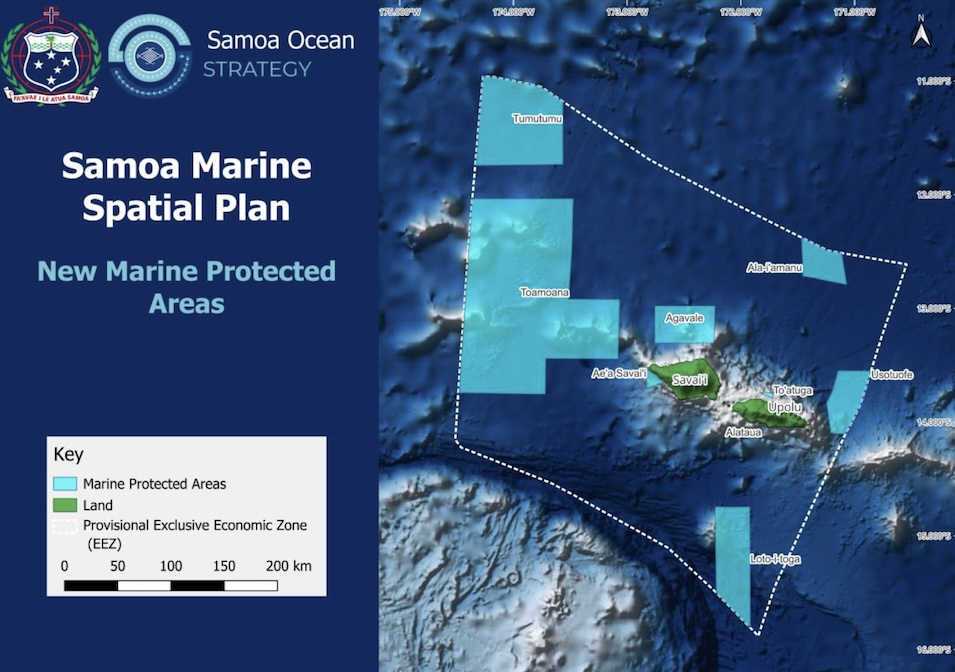
The Pacific Island nation of Samoa announced the creation of nine fully protected marine areas—safeguarding 30% of its national waters—and the passage of a new law to ensure 100% of its ocean will be sustainably managed by 2030.
The new marine protected areas will prohibit all fishing activities across 36,000 square kilometers of ocean—an area roughly the size of Vietnam—ensuring these waters remain completely off-limits to extractive use.
Studies have shown that highly protected marine protected areas (MPAs) are more effective at restoring marine life within their boundaries, stated National Geographic Pristine Seas. Strong protection allows ecosystems to recover and fish populations to rebound, often boosting marine life in surrounding areas through a phenomenon known as “spillover.”
Kevin Chand, the Senior Director of Pacific Ocean Policy at Pristine Seas, said:
“On the eve of the UN Ocean Conference, Samoa has successfully protected 30% of its ocean. This is a notable achievement, given that Samoa has one of the smallest Exclusive Economic Zones (EEZs) in the Pacific.
Samoa joins a pioneering set of countries that have achieved the goal of protecting at least 30% of their ocean.
At the UN Ocean Conference, all eyes should be on the many Pacific leaders attending. Their ambition and dedication to ocean protection can serve as inspiration to all countries seeking to achieve 30x30.”
-
National Geographic Pristine Seas works with Indigenous and local communities, governments, and other partners to protect vital places in the ocean through research, policy, and filmmaking. Since 2008, Pristine Seas has helped establish 29 marine protected areas, spanning more than 6.9 million square kilometers of ocean. Pristine Seas is part of the global non-profit, the National Geographic Society.



